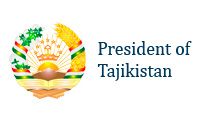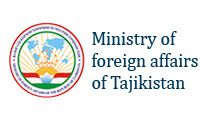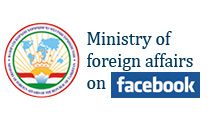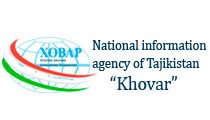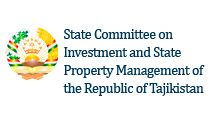Article by the President of Tajikistan, Chairman of the Council of Heads of SCO Member States in 2021 Emomali Rahmon
Emomali RAHMON,
President of the Republic of Tajikistan,
Chairman of the Council of Heads of
the SCO Member States in 2021
Since the early days of gaining its state independence, the Republic of Tajikistan, based on the principles of the “open doors” policy, peacefulness, and objectivity, established and subsequently extended and strengthened friendly, equal, and mutually beneficial relations with most countries of the world, and with a number of them established a strategic partnership. One of the priorities of the international strategy of the Republic of Tajikistan is the policy of good-neighborliness and multilateral cooperation with the Central Asian states. The creation of an atmosphere of credibility and security along the entire perimeter of the country’s borders is one of the key goals of this policy. Along with this, the foreign policy of our state aimed at ensuring wide-ranging and effective participation of the country in relevant international and regional organizations. Through the implementation of such policy, Tajikistan makes its feasible contribution to ensure security and peace, the establishment of beneficial international cooperation and constructive dialogue and takes the advantage of the capabilities of international and regional organizations to enable the sustainable development of the country and strengthening its position in the international arena.
This year the Republic of Tajikistan celebrates the 30th Anniversary of State Independence. During this short period by historical standards, our republic has established full-fledged diplomatic relations with 179 countries of the world and has become an active member of prestigious international and regional organizations.
By establishing partnerships with the world community within the framework of international and regional organizations, the Republic of Tajikistan has expanded cooperation with the UN and its specialized agencies, SCO, CSTO, OSCE, ECO and OIC, as well as with other development partners, international and regional financial institutions.
In the framework of multilateral diplomacy, the Republic of Tajikistan pays particular attention to the development of fruitful relations within the framework of the Shanghai Cooperation Organization (hereinafter referred to as SCO / Organization). It is no coincidence that the current Foreign Policy Concept of the Republic of Tajikistan notes: “Active participation of the Republic of Tajikistan in the Shanghai Cooperation Organization aims to strengthen good-neighborly ties, friendly and amicable relations among the Member States and observers of the Organization, as well as ensuring security, stability and sustainable development in the region».
Therefore the Republic of Tajikistan perceives priority areas of its activities within the framework of this Organization not only in the spheres of security and economic collaboration but also in the development and improvement of multilateral cooperation in the cultural and humanitarian fields.
Tajikistan also supports the involvement of observer states in the sphere of combating the contemporary challenges and threats within SCO.
It should be highlighted that SCO, the twentieth anniversary of which we are celebrating this year, has confirmed from the first day of its activity that it is a dynamic Organization and a reputable international institution not only in the region but also at the global level.
Over its twenty-year history, SCO has turned into one of the most influential international organizations of a new type, into a unique regional structure that has repeatedly proved its universal character in resolving topical world issues. The course of events in the era of globalization has clearly shown to all political actors that no state alone is capable of effectively dealing with modern challenges and threats. Under such circumstances, only coordinated measures and joint efforts of all states can be effective.
A popular proverb says, “A friend in need is a friend indeed”. SCO member states in the most difficult times of the outbreak of the COVID-19 pandemic have demonstrated their solidarity, provided effective support to each other on many problematic issues. The world has once again become convinced that the member states of the Organization are committed to the values and principles of the «Shanghai Spirit».
SCO has gone through a long process of formation to reach the current stage of development and become a powerful international organization. To establish the organization as such, it was essential to go through a period of fruitful and multifaceted cooperation.
Considering the development of the international situation and the surge in security threats in the region at the end of the 90’s of the last century, the “Shanghai Five” member states faced the crucial decision. It was necessary to agree on the creation of a new, improved organization as one of the most important tools to counter the new threats and challenges that are gaining strength.
Taking into account the real state of affairs, the Heads of State decided to initiate the foundation for creating a more complete structure based on the “Shanghai Five”, which could unite China, Russia and all the Central Asian countries into a single regional organization.
Considering the identified tasks an intergovernmental commission was established, which carried out immense consultative work.
On 25 August 1999, fourth summit of the “Shanghai Five” held in Bishkek. At this forum, it was decided to transfer the initiative to hold the Fifth summit of Heads of State to Tajikistan.
The presidency of the Republic of Tajikistan in the “Shanghai Five” lasted from September 1999 to July 2000.
During the presidency, we carried out comprehensive preparatory work on holding the summit of the «Shanghai Five», to which the leadership of the Republic of Uzbekistan was invited.
The meeting of the Heads of the “Shanghai Five” countries, which took place on 5 July 2000 in Dushanbe, became a remarkable event of particular significance. The «Shanghai Five» was called the «Shanghai Forum» in Dushanbe. It was this Dushanbe decision that laid the foundation for the creation of SCO.
Thus, a proposal to transform the “Shanghai Five” into a regional international organization, which is currently known as the Shanghai Cooperation Organization, introduced in Tajikistan. The Dushanbe Declaration of 2000 laid down the fundamental ideas about the goals, objectives and main directions of activities of the future prestigious regional international organization — SCO, which today has taken a worthy place in world political reality.
Later, on 15 June 2001, a meeting of Heads of State took place in Shanghai during which a Joint Declaration on the Republic of Uzbekistan’s accession to the “Shanghai Five” was adopted, and a Declaration on the establishment of SCO was signed based on the accumulated experience within the “Shanghai Five”.
As humanity entered the new century, the world has witnessed the emergence of a powerful international structure.
One of the important steps in the formation and development of SCO was the meeting of the Council of Heads of State in 2005: it took a fundamental decision to grant observer status within the Organization to three major Asian powers — India, Iran and Pakistan. Earlier in 2004, status was granted to Mongolia. The geographical expansion of the Organization made it possible to rise its international significance.
Later in 2007, SCO countries signed an Agreement on Long-Term Good Neighborliness, Friendship and Cooperation.
In 2009, a decision was taken to grant the status of a dialogue partner to Sri Lanka and Belarus.
In 2012, SCO leaders adopted a Declaration on Building a Region of Long-Term Peace and Shared Prosperity. In the same year, Afghanistan gained observer status in SCO, and Turkey became a dialogue partner.
In 2014, India and Pakistan officially applied for SCO membership. This coincided with Tajikistan’s chairmanship in SCO in 2013-2014. This period gave a new impetus to the procedure for considering the issue of granting the status of SCO Member State. The Summit of the Heads of State of the Member States in Dushanbe laid a solid foundation for the elaboration of a legal basis for the procedure for granting the status of SCO Member State. This procedure was further discussed and finalized at the next Summit of Heads of State.
In 2015, the leaders of SCO countries approved a decision to commence the procedures for admitting India and Pakistan to membership in the Organization, and resolutions were also signed on granting Belarus an observer status at SCO, as well as on granting the status of a dialogue partner to Azerbaijan, Armenia, Cambodia and Nepal. Thus, SCO has promptly evolved from a standard regional organization into a large international organization. Such a rapid expansion of the Organization over just two decades, both in structure and in the variety of activities, demonstrates precision in determining the goals and good intentions of SCO.
This process produced its first results at the Summit of the Shanghai Cooperation Organization in Astana in June 2017. The two largest countries in the region, India and Pakistan, have obtained the status of member states of the Organization.
It is noteworthy that, according to the fair opinion of most experts, such organizations in the contemporary world are the essential organizers of interstate communication to facilitate the solution of international issues. Since the very beginning of SCO establishment, the entities were set up to meet the demands of modern realities. For instance, SCO Secretariat and the Executive Committee of SCO Regional Anti-Terrorist Structure (RATS), which have been operating since January 2004, were identified as permanent bodies or structures based on mutual agreement of the parties. Beijing city was determined as the venue of SCO Secretariat, while Tashkent city was the venue of SCO Executive Committee.
Generally, analyzing the overall arrangements of SCO establishment and all phases of its development it should be emphasized that many political, historical and economic factors led to the emergence of the Organization in the political space of Eurasia, the most important of which are:
- destruction of the bipolar system in international relations;
- formation of a new world order as a result of the collapse of the former USSR;
- rise of new challenges and threats, among of which terrorism, extremism and separatism were the most dangerous phenomena;
- realization of the principles of a just world order, dominated by the aspiration for joint development, taking into account the experience of relations that have developed among the countries of the region within the framework of the “Shanghai Five”;
- joint pursuit for new effective mechanisms that would enhance the regional integration of countries;
- formation of a new model of cooperation in the region, where the priority areas are security, economic interaction and cooperation in all areas.
In fact, in the years when SCO was founded, significant changes took place in the world that completely altered the content and vectors of world politics. In this regard, the countries that initiated the establishment of this Organization had to adapt it to new world realities, to fast-paced conditions and seek a worthy place for it in the world political arena. The new conditions required the newly formed regional international organization — SCO, to operate differently, more actively contribute to the solution of topical regional problems.
The question arose in this way: the Organization must have the capability and ability to meet the interests of the member states, to carry out economic, trade, cultural and humanitarian integration in complicated international circumstances.
The further activities of SCO proved that the Organization not only succeeded in starting to address these issues but also to become a structure that occupies strong positions in the international political arena.
SCO’s activities are focused, which is very important, not only on political issues but also on economic ties. Within the framework of the Organization, the long-term economic cooperation plans have been approved by the member states, the purpose of which is to facilitate the free movement of goods, services and technologies among all member states. The interaction of countries in the fight against crime, in the spheres of culture and education, science and innovative technologies, as well as in such areas as health care and the agro-industrial complex is also gaining strength.
Twenty years of SCO’s activity confirms that this Organization is reputable and influential platform for discussing and solving pressing regional and international issues.
Accordingly, Tajikistan is involved in its activities, including in the Program of Multilateral Trade and Economic Cooperation of SCO Member States and interacts in the implementation of various projects and in other areas.
Over twenty years of its activity in the field of international politics, SCO has been a hallmark of an effective organization and has won great authority in the fast-growing world. Its recognition as an observer in the UN General Assembly as well as effective cooperation with the Commonwealth of Independent States and ASEAN testifies to the growing status of the Organization in world politics.
On the other hand, further progress and expansion of SCO depend on many regional and international factors. This is, primarily, the geopolitical situation in the world, cooperation in matters of regional security and trade and economic development.
It would be appropriate to state that the role of the Republic of Tajikistan, as one of the founders of SCO, is essential in the process of formation and development of the Organization.
Tajikistan chaired the Council of Heads of State in 2008 and 2014, and the Council of Heads of Government of SCO member states in 2006, 2010 and 2018.
We will expand our activities within the framework of the Organization and strengthen our relations with its members, continue our joint activities within SCO in the field of countering modern challenges and threats, in particular, terrorism, extremism, illicit drug trafficking and other manifestations of transnational organized crime.
Tajikistan believes that SCO member states should not only preserve the traditions of good-neighborliness, but also find new optimal ways to solve existing or emerging problems of a socio-economic nature.
To date, our countries have achieved positive results in all these areas. However, in a rapidly changing world, we should not stop there, but move forward and solve topical issues of a political, economic and social nature. Together we should strive to ensure security in the region and the peaceful coexistence of all countries of the world.
In 2020, the presidency of the Organization handed by the Russian Federation to the Republic of Tajikistan. Accordingly, the Jubilee Summit of the Heads of SCO States will be held in Dushanbe on 16-17 September 2021. This is very significant since the initial decision to establish SCO was taken in the capital of our country.
We are confident that after celebrating its anniversary, SCO will continue to be an active structure, an effective platform for exchanging views, developing common positions and agreeing on various points of view, and will also improve its policy following the demands of the times.
SCO’s activities fully comply with the basic principles of the foreign policy strategy of our state. We are interested in further strengthening its role in solving the key tasks of strengthening peace and security, expanding trade, economic, cultural and humanitarian ties.
In conclusion, I would like to note that from the very beginning of its foundation, SCO has been striving to establish fair international relations. Twenty years of the Shanghai Cooperation Organization’s activity, which coincided with a very difficult period in international relations, have shown that the Organization has become a real force in the arena of global politics. SCO member states have achieved a high degree of cooperation and trust in resolving the issues of policy, economy and security. Annual meetings at different levels not only provide an opportunity to a timely solution of urgent problems, but also provide quick responses in the rapidly changing world. All these indicate that the Shanghai Cooperation Organization, at the origin of which was also our State, is indeed a very promising structure both in the regional and the global scale.
Interview of the President of Tajikistan Emomali Rahmon with the Khovar National News Agency on the Occasion of the SCO’s 20th Anniversary
Interview of the President of Tajikistan Emomali Rahmon with the Khovar National News Agency on the Occasion of the SCO’s 20th Anniversary
15.06.2021 18:05
Tajikistan is presiding over the Shanghai Cooperation Organization (SCO). The current and its third presidency coincides with the organization’s 20th anniversary and is held under the motto “Twenty Years of the SCO: Cooperation for Stability and Prosperity.” On this occasion, , the Founder of Peace and National Unity, Leader of the Nation, President of the Republic of Tajikistan Emomali Rahmon discussed SCO matters and goals with Khovar National Information Agency.
Khovar: Mr. President, the anniversary is an occasion to remember the past, evaluate the present and attempt to envisage the future. You stood at the origins of the SCO establishment. How was this regional organization formed?
President: It all began exactly a quarter of a century ago with an active dialogue between the heads of states. In 1996, the Chinese city of Shanghai hosted the first meeting of the heads of five states, namely that of Kazakhstan, Kyrgyzstan, Russia, Tajikistan, and China, during which an Agreement on Confidence-Building in the Military Field Along the Border Areas was signed. Based on this agreement, a regional mechanism of interaction called the Shanghai Five was established. A year later, in 1997 in Moscow we signed the agreement on mutual reduction of armed forces in the border areas.
On July 4-5, 2000, the fifth and last meeting of the heads of state of the Shanghai Five took place in Dushanbe, the final declaration of which contained a provision providing for the transformation of the Shanghai Five into a regional structure with a multilateral cooperation in various fields.
Subsequently, on June 14-15, 2001 in Shanghai, at the summit of the leaders of Kazakhstan, China, Kyrgyzstan, Russia, Tajikistan, and Uzbekistan, an announcement was made of the creation of a multilateral structure called the Shanghai Cooperation Organization. Therefore, it can be said that the Dushanbe meeting of the heads of state of the Shanghai Five laid the conceptual basis for SCO’s creation.
Khovar: In June 2002, the SCO Charter was signed in St. Petersburg. This document is considered a fundamental document. What are the main goals and objectives of the SCO?
President: The SCO Charter is a historical document of decisive importance for the organization. It defines the goals and key areas of cooperation. It lays a solid legal basis for the functioning of the organization. The Charter defines three main areas of activity that ensures our joint progressive development within the framework of the association. It encompasses cooperation in politics, security, economy, culture, and in the humanitarian sphere.
According to the Charter, the main goals and objectives of the SCO are strengthening mutual trust, friendship, good neighborliness, maintaining and strengthening peace, security and stability in the region, jointly countering terrorism, separatism, extremism and all of their manifestations, promoting comprehensive and balanced economic growth, social and cultural development in the region, as well as maintaining and developing relations with other states and international organizations. Today SCO member states are progressively implementing the provisions laid down by its founding fathers.
Khovar: How did the SCO continue to develop? What subsequent events can be deemed significant?
President: First, I would like to note that in 2007 the SCO countries signed a Treaty on Long-Term Good Neighborliness, Friendship and Cooperation. This was very important.
Another important step towards the development of the SCO was the meeting of the Council of the Heads of State in 2005, which granted observer status to two major Asian powers, namely India and Pakistan, which, twelve years later, became full members.
Over time, Mongolia, Belarus, Afghanistan and Iran also receive observer status, while Armenia, Azerbaijan, Turkey, Cambodia, Nepal and Sri Lanka received dialogue partner status. More than ten states, including Ukraine, Saudi Arabia, Qatar, Israel, and others have applied to participate in the SCO under the observer status.
Today, the organization has expanded geographically and increased its importance in the global arena.
Khovar: What opportunities does the organization have and what is its status globally?
President: The territory of the SCO, including that of its observer states, extends from the Atlantic to the Pacific Ocean and from the Arctic to the Indian Ocean, occupying more than 60 percent of the Eurasian continent, and on this territory, which is over 34 million square kilometers, live over 3 billion people, which is almost half of the world's population.
Twenty years is a short time in terms of human history, but in this short time the SCO was able to acquire international recognition and has become a successful platform for multidisciplinary interaction. Over the years, the legal framework of the organization has been formed and is constantly being improved, and its solid institutional foundations have been created.
Today, the SCO is an influential and responsible participant in the modern system of international relations, contributing to ensuring peace, security, settling international and regional conflicts exclusively by political and diplomatic means, proceeding from the principles of equality, respect for sovereignty, territorial integrity, and non-interference in the internal affairs of states, with the refusal to use or threaten the use of force. In a word, over a relatively short period of time, the organization has become a significant force in regional and global politics.
Khovar: The SCO Development Strategy until 2025, which was adopted following the Ufa summit in July 2015, defines the guidelines and parameters for the evolution of the organization. What is key in this document?
President: The Strategy emphasizes that the SCO countries respect the right to choose the path of political, economic, social, and cultural development, considering the historical experience and national characteristics of each state, promote inter-civilizational dialogue, common peace, progress, and harmony. It also advises that they be guided by the principles of non-interference in internal affairs of states, respect the sovereignty and territorial integrity of the SCO member states, and refrain from supporting the use of unilateral pressures without the approval of the UN Security Council. This is one of the important points of the document.
Additionally, the SCO activities will not be directed against third countries and their associations. The member states proceed from the immutability of the principle enshrined in the SCO Charter of preventing any illegal actions directed against the interests of the SCO. The SCO states also intend to help the international community give equal importance to "all types of human rights, including the right to development."
According to the strategy, special attention is paid to cooperation on countering the activities of international terrorist organizations aimed at involving citizens of SCO member states in terrorist, separatist, and extremist groups. The SCO countries counteract the spread of extremist and separatist ideas, primarily among young people, and work to prevent religious extremism, aggressive nationalism, as well as ethnic and racial intolerance.
In the sphere of ensuring regional security and stability, in addition to countering terrorism, members states continue to fight against illicit drug and weapons trafficking, illegal crossing of nuclear materials, cross-border crime, illegal migration, and human trafficking.
Khovar: This jubilee year for the SCO is the time to sum up the results of its activities. Were the set tasks of the organization achieved?
President: Undoubtedly, for Tajikistan, as well as for all Central Asian states, with the emergence of the SCO, the conditions for safe and stable development have improved, and a serious impetus has been given to multilateral economic cooperation. This is our common merit, and we can be proud of our joint achievements.
It is noteworthy that the main trade partners of Tajikistan at present are precisely SCO member states, namely Russia, China, Kazakhstan, Uzbekistan, Pakistan, and India.
The SCO Regional Anti-Terrorist Structure (RATS) also makes a real contribution to global and regional security, coordinating the efforts of member states in the fight against the so-called "forces of three evils" and other types of cross-border crimes.
Over the years of SCO's existence, the established SCO-Afghanistan Contact Group has been aiming to help Afghanistan, our southern neighbor, to become a stable and secure state, free from terrorism and drug-related crime, helping its inhabitants live in peace with its neighbors.
Now, the SCO has expanded to eight member states due to the inclusion of India and Pakistan as full members.
As for the implementation of the set tasks, I can say that assessments of what has or has not succeeded over the past 20 years will be given by the heads of the SCO member states on September 16-17 this year during the Dushanbe summit.
Khovar: Mr. President, as the Chairman of the Council of Heads of SCO Member States, what are the main tasks and areas of work of the organization in 2021 that you can single out?
President: The main task is to strengthen the potential and international position of our organization. I have briefly outlined our vision of the main directions of joint work during Tajikistan’s presidency in the SCO at the previous summit which took place in November last year.
I repeat that against the backdrop of the coronavirus pandemic, we are now facing new socio-economic challenges. The national economies of member states, including Tajikistan, have suffered significant damages. The pandemic has forced certain adjustments to the dynamics of global economic growth. It has become a factor in the sharp rise in unemployment, an obstacle to the inflow of investments and the development of trade. Various countries have and may continue to face food security threats. According to authoritative international organizations, the negative impact, and consequences of the pandemic on the world economy is long-term.
Obviously, these challenges dictate the urgency of an adequate joint response. It is extremely important to build up trade and economic cooperation within the SCO space. Unimpeded transportation of social goods in the SCO space, including food products and medicines is of great importance.
We see the priority of our presidency in further strengthening the internal consolidation of our organization using all available opportunities and resources for mutual support. Accordingly, the focus is on the widespread use of the transit possibilities of the SCO space.
There is a need to increase cooperation in the industrial production and energy sectors, especially in the areas of renewable energy sources, including hydropower. In this context the first meetings of the ministers of industry and energy of the SCO member states are scheduled to be held in Dushanbe in July and August of this year. We hope that these events will lay the foundation for the creation of full-fledged mechanisms of interaction within the SCO in these areas. I think that during the Dushanbe SCO summit we will adopt appropriate decisions.
We look forward to the comprehensive promotion of a set of issues related to food security. In the context of humanitarian cooperation, Tajikistan, as chairman, supports all proposals to expand cooperation in the fields of education, science, culture, sports, tourism, as well as work with youth.
In the current context, the development of cooperation in the field of environmental protection, including climate change, is of particular importance. Tajikistan has 13,000 glaciers and about 1,000 rivers, which form more than 60 percent of Central Asia's water resources. The availability of these resources creates the basis for the development of a green economy.
The joint use of Tajikistan's immense hydropower potential will significantly increase the level of energy supply to the countries of the region, reduce the cost of its production, reduce the damage to the environment, including by limiting the volume of carbon dioxide emissions into the atmosphere. Therefore, we look forward to the continued support of partners in the implementation of our initiatives on the global water agenda, including the proposal to establish an International Glaciers Protection Fund.
Of course, I consider it necessary to promote the joint purposeful work to combat global threats and security challenges. The issues of cybercrime and countering the spread of various radical ideologies, especially among young people, require special attention.
All these areas cover the Concept of Tajikistan’s presidency in the SCO in 2020-2021, as well as the Plan of Key Events. Most of the activities included in this plan will take place in Tajikistan and will include meetings of ministers of foreign affairs, defense, justice, finance, health care, transport, secretaries of security councils, heads of anti-drug bodies, tourism departments, as well as a gala concert, festivals, and forums with the participation of representatives of the SCO family.
Khovar: By the way, the Plan of the main events of Tajikistan’s presidency in the SCO also includes the Forum of SCO Mass Media Heads scheduled in early August this year. What is the role of the media in the development of cooperation between the organization’s member states?
President: They are very important, given that we live in a period of rapid development of information and communication technologies. I have stated more than once that this is the century of global informatization. As you know, back in 2003, we had adopted the State Strategy Information and Communication Technologies for the Development of Tajikistan.
Today information is becoming one of the most important tools for shaping the future of humanity. How the world will live tomorrow and how it will remember the past largely depends on how the media covers today's events. The position of journalists, bloggers, writers, and other creative people determine the atmosphere both within a particular country and between states.
Khovar: How do you assess the potential and prospects of the SCO?
President: I want to repeat one simple truth that no goal is impossible if there is the desire to accomplish it. And the SCO leaders are full of desire to change life in the region for the better.
The main content of the principles of the organization's activities are openness, trust, equality, good-neighborliness, mutual benefit, mutual consultations, respect for the diversity of cultures and civilizations, and the desire for joint creation and development. These principles are rightfully considered pivotal in the formation of cooperation between member states as a new model of regional interaction with the goal of achieving universal harmony and prosperity.
I would like to note that the ideas of friendship, goodwill, mutual trust, good-neighborliness, and mutual support permeate the works of a whole galaxy of great personalities and thinkers of the East, - the glorious ancestors of the peoples now inhabiting the SCO space. Passing from generation to generation, from era to era, this heritage is a collection of enduring values that remain relevant outside time and space. We need to protect, multiply and apply them in everyday life and activities.
In this regard, I am confident that the decisions that will be made during the anniversary summit of the organization in Dushanbe will serve to further strengthen regional security and stability, build up cooperation within its framework in political, economic, humanitarian, and other areas of mutual interests.
Khovar: Thank you, Mr. President, for your time! We wish you good health, good luck in all your endeavors, including the successful holding of Tajikistan’s presidency over the Shanghai Cooperation Organization!




